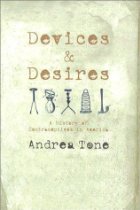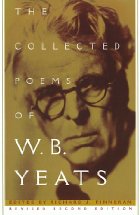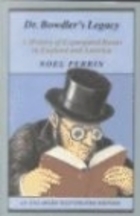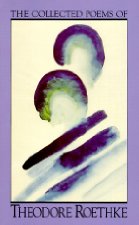
While David and I were looking through our web statistics today, we saw that someone found our blog by searching Google for "pornography and birth control." They were referred to my entry on the antics of Dr. Bowdler and his cronies, in which I only mention pornography in passing. Bemused, I Googled the phrase myself, curious to know our search ranking when it came to this vital subject. I was flabbergasted to learn that we are the SIXTH hit on Google. And everyone above us? Either personal opinion sites, or right-wing "purity clubs" promoting abstinence among teenagers. This was shocking! "Planned Parenthood needs to get their ass in gear!" I exclaimed. "They should be the top hit." "But they don't really deal with pornography," David pointed out. "Well...so, the ACLU," I countered, realizing as I said it that they don't really deal with birth control. How could it be, though, that there is no organization addressing these two subjects in tandem, these two subjects which have been inextricably linked throughout the history of the United States? Well, I'm here to tell all you hapless Googlers out there: much information awaits you, and I happen to know some good places to start your research.
My favorite book addressing the nexus of birth control and pornography in the U.S. is Andrea Tone's awe-inspiring Devices and Desires: A History of Contraceptives in America. As Tone spells out in the introduction to her book, one reason that birth control and pornography were ever linked in the public mind is that both were classified as "obscenity" by a Victorian-era America. Yes, they were straight-up prudes, but the situation was more complicated: the United States, in the fledgling days of the American Medical Association, was beset by a thriving patent-medicine and sketchy-pamphlet trade that was indistinct from the "legitimate" medical profession and book trade. At the same time as certified American doctors were battling in courts and the public eye to combat cheap snake-oil treatments peddled to their customers under false pretenses, Americans were witnessing a brisk trade in what Tone calls "inexpensive, sensationalist, and sporting publications of 'questionable character' [which] promoted impotence cures, pornography, and contraceptives simultaneously."
Interestingly, one of the major battles for the early AMA was against the then-commonly-accepted practice of abortion and fertility control, largely promoted by unlicensed (read: female) midwives. The smut peddlers, midwives and hucksters all got thrown out with the bathwater in 1873, with the passage of the so-called Comstock Law. This legislation inaugurated the 100-year federal ban on abortion in the United States (individual states began outlawing it as early as 1821), as well as forbidding anything "obscene," including information about contraception as well as more obviously pornographic documents, to be sent through the mails. At the time, this was a very effective mode of censorship, as it was difficult to effect mass communication without using the postal service.
Tone does a great job outlining the amazing rationales that nineteenth-century Americans used to justify their anti-obscenity positions. These really run the gamut, from the familiar argument that education about contraception leads to promiscuity - seemingly strangely-placed in the mouths of nineteenth-century feminist suffragettes - to the weirdly essentialist notion, propounded by an AMA doctor, that a woman is "what she is in health, in character, in her charms, alike in body, mind and soul because of her womb alone," and that to deny the womb's child-bearing destiny to any degree would be to severely endanger the woman's health. Unlike bearing thirteen children in twelve years, which is great for any woman's health, lemme tell YOU. There is also the bizarre notion that using birth control renders MEN "weak and susceptible to...diseases of the brain and spinal marrow, functional disorders, organic diseases of the heart, lungs and kidneys, wasting of the muscles, blindness, and frequently impotence." That's right: using birth control results in impotence.
Clearly, the United States Government needed to STOP people from sending birth control information and devices through the mails, because it was very important that our American men not be rendered sexually impotent, and our women hysterical and sickly, through ill-advised use of birth control. Because the ability to have sex is very important to us Americans, and part of our national character. And clearly, the United States Government ALSO, in the same law, needed to stop people from sending pornography through the mails, because porn is titillating, and might induce some American people into the desire to have sex. And as everyone knows, sex is obscene and anti-American, and totally counter to everything we in this great country hold sacred. So, clearly, something had to be done.
Ever since 1873 and before, the histories of pornography and birth control - and the censorship thereof - have been intertwined, from the arrests of Emma Goldman and Margaret Sanger for promoting information about the "obscene" practice of birth control, to the claims of Andrea Dworkin and Catherine McKinnon in the 1970's that, far from promoting economic parity alongside birth control, porn actually prevents women from taking control of their own sexuality through its objectification of and violence towards them. Tone's book covers most of the ground in between and before these events, devoting an entire fascinating chapter to the evolving attitudes of the American military toward servicemen's sexual activities during shore leave, detailing in other chapters the methods that enterprising couples found even during the darkest era of anti-contraceptive legislation to limit their fertility, and progressing to the devastating saga of corporate irresponsibility, blatant mysoginist and racist attitudes in testing IUD's in the late 1970's and 1980's. (In one memorable letter, an IUD manufacturer claims that "If Mrs. Astorbilt, or Mrs. Searle or Mrs. Guttmacher gets pregnant while using an IUD, there is quite a stink - the thing is no good and a lot of people will hear about it. However if you reduce the birth rate of...the Korean, Pakistanian or Indian population from 50 to 45 per 1,000 per year to 2, 3 or 5, this becomes an accomplishment to celebrate." In a return to the pornography connection, women who complained of pain when defective IUD's pierced their uterine walls, were often accused of sexual promiscuity or improper sexual practices. I should also note: IUD's have come a long way since then, and ladies nowadays don't need to feel hesitant about getting one.)
Tone's is a fascinating and complete history from the contraceptive end of the scale. It does often deal with pornography, due to the connection in the American psyche between the two subjects, but there are other histories that tackle the BC/porn dichotomy from the more porn-centric side. For the United States story, Paul S. Boyer's Purity in Print: Book Censorship in America from the Gilded Age to the Computer Age deals quite extensively with the pornography/birth control mishmash, and for the history of our neighbors across the pond I'd recommend Steven Marcus's The Other Victorians (an in-depth study of the Victorian-era pornography trade) and Michael Mason's excellent two-volume study The Making of Victorian Sexuality and The Making of Victorian Sexual Attitudes, which are a comprehensive look at how birth control, pornography, censorship, religion, morality and many other factors played into the sexual lives of real Victorian people, and - radical idea! - what they themselves thought about that.
Obviously, my knowledge about the nexus of porn and birth control is mainly confined to the ways in which both subjects intersect with the idea of "obscenity" and the historical efforts to censor it, being as I am a censorship-history dork. I'm sure there are many other approaches to the connection between these fields, and I implore anyone with good suggestions on relevant reading material to comment on this entry as a resource for future Googlers. Honestly, I was a little bit alarmed that this poor searcher wasn't getting any more developed discourse than a few toss-away mentions on personal blogs, and anti-sex propaganda. The least I/we can do is to put together a personal blog entry that they would find useful, assuming they aren't just a perv with a birth control fetish. Not that there's anything wrong with that. It would actually be the most responsible fetish I've ever heard of, come to think of it.
So now you know: Google. If you want me to write about some book I read on the case histories of one nineteenth-century French orphanage, or the politics of "the rogue" in eighteenth-century picaresque novels, or an essay I slogged through on how taking E is somehow a revolutionary act, all you have to do is Google it, and since I'm writing this right now you will find the blog, and I will see you and be horrified that the only hit you're getting is this rambling paragraph with no real information at all. WHAT IF YOU REALLY DECIDE THAT TAKING E IS REVOLUTIONARY? HOW WILL I SLEEP AT NIGHT???
See? Isn't that cool how the vicious cycle replenishes itself?
PS - In an interesting "it was all a dream" post-script to this story, when I Google the same phrase today I get exactly what I would have expected: a mix of personal, academic and institutional pages addressing the BC/porn nexus from a plethora of angles. Needless to say, I hope the second trend continues.




